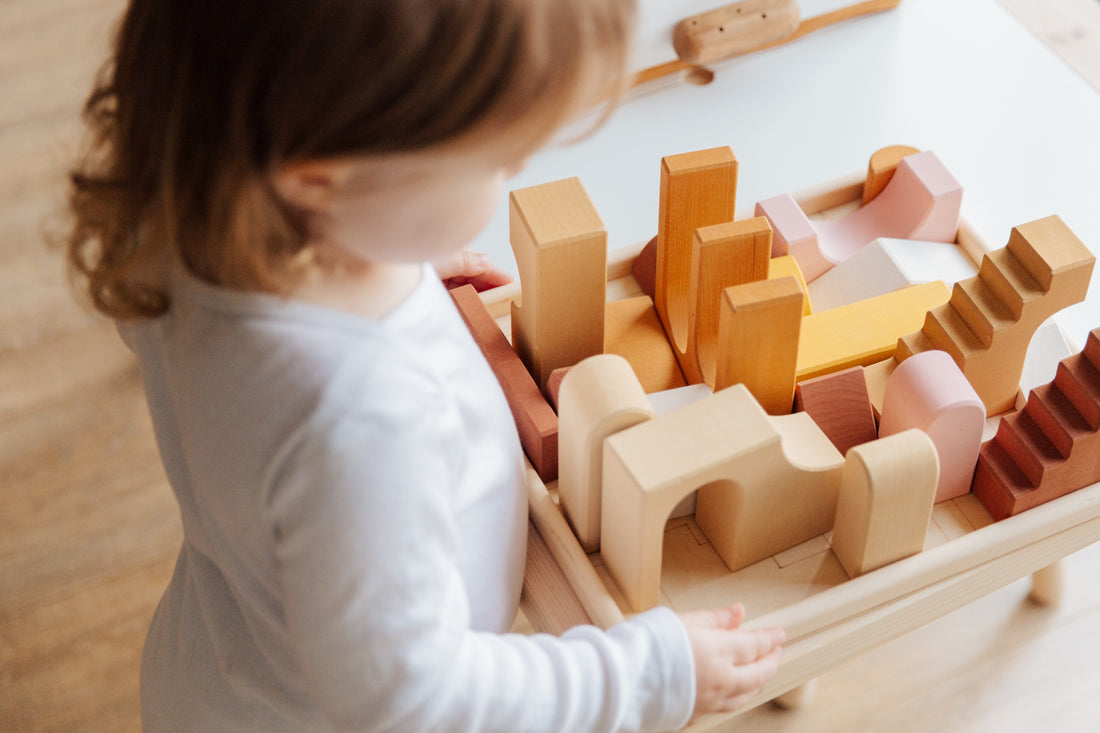
Top Benefits of Sensory Play From an Early Age
Anabelle DwyerShare
It is no secret that sensory play is beneficial for young children. Engaging in different activities that stimulate the senses can help promote cognitive, physical, and emotional development. Sensory play helps children develop problem-solving skills. When kids are allowed to explore various textures, smells, sounds, and tastes, they learn to think critically and figure out how to solve problems. Sensory play also helps improve communication skills and supports physical development. Let’s look at these benefits in-depth and discover more about the benefits of sensory play.
What is sensory play?

By utilizing the power of play, sensory play promotes early childhood development. Sensory play simply involves all of the senses, which aids in cognitive, physical, and emotional growth. You only need a few simple materials to create a sensory experience for your child. 1) a container or bin, 2) any toys or household objects you wish to include 3) a variety of sensory materials such as sand, beans, rice, cotton balls, soap, pudding, water, and so on.
Because children learn best through active involvement with the world around them, sensory play provides hands-on, interactive learning experiences. Sensory play is a favorite activity among parents and therapists because it allows for several possibilities to focus on all areas of development in various ways.
Early childhood development and sensory play are great tools to work on all areas of early childhood development, such as cognitive, play skills, and sensory development.
Fine and gross motor development
Sensory play can aid in developing fine motor abilities. This is accomplished by having children grab various things differently, eventually advancing to employing a pincer grasp with only two fingers. Scooping and dumping objects with a cup or spoon can also aid wrist rotation, which is required for tasks like drinking from an open cup, eating with utensils, and completing puzzles. Sensory play also benefits gross motor abilities, regardless of developmental level. A child can benefit from sensory play in various ways, including pulling to stand, moving along the table sideways, crouching down to pick up a toy, and reaching and standing up to hold a toy. Furthermore, sensory play might increase a child's core strength, balance, and walking or crawling ability.
Language and Social & Emotional development
Sensory play is an excellent approach to aid with early childhood language development. Sensory play is giving activities that hold a child's interest while also introducing new vocabulary terms. You may also reveal your lips when you produce noises and act out verbs with toys in this form of play. It also allows you to interact with your child and share a wonderful experience. It's a terrific opportunity to pay attention to each other and then react to their facial expressions, emotions, and behaviors. Sensory tables are also an excellent opportunity for kids to practice parallel play with each other and get a sense of what others are doing and experiencing.
Cognitive and play skill development
Depending on a child's developmental stage, a sensory bin may be used for various activities. Learning about action and reaction, object permanence, putting cups and toys together, and the notions of in/out are all possible activities. As children age, they may participate in activities that include colors, shapes, letters, numbers, counting, sorting, and matching. In addition, concerns as to why particular events occur might be raised. A sensory bin may be used to target play skills by supporting various forms of play. Play is the most effective early childhood development technique. A child's brain growth and development can both benefit from sensory experiences ranging from sight to touch and scent.
Sensory play is an integral toy child development and can have various benefits. It helps children learn about their world, develop fine motor skills, and practice problem-solving. Sensory play also helps children develop social and emotional skills. If you’re looking for ways to promote your child’s development, consider incorporating some type of sensory activity into their daily routine.
